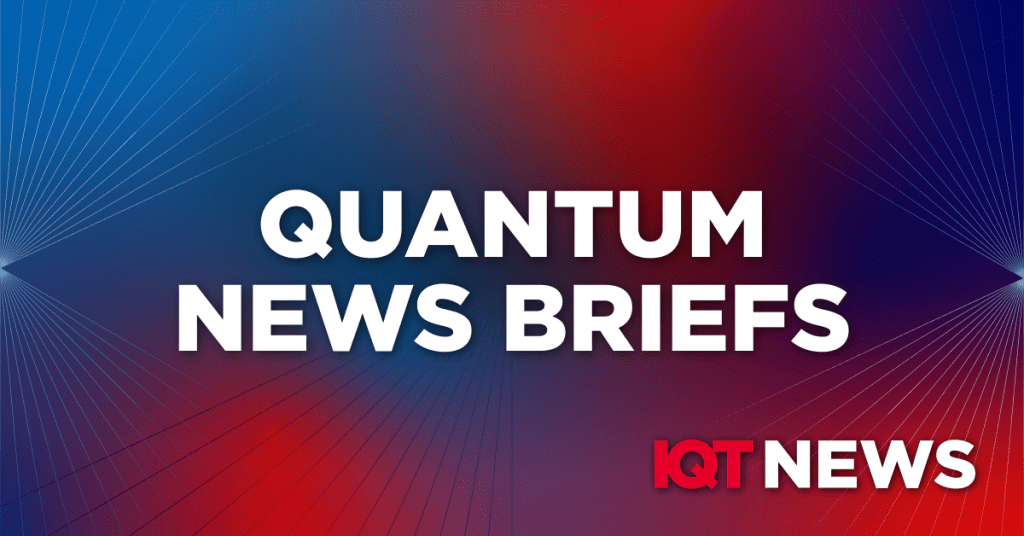Quantum News Briefs: March 20, 2024:
IQM Quantum Computers launches IQM Resonance, a cloud service to advance quantum exploration and research
NVIDIA Powers Japan’s ABCI-Q Supercomputer for Quantum Research
NVIDIA has announced its collaboration with Japan in powering the new ABCI-Q supercomputer, a pivotal development designed to propel the nation’s quantum computing efforts forward. The ABCI-Q, to be powered by NVIDIA’s platforms, integrates over 2,000 NVIDIA H100 Tensor Core GPUs and employs NVIDIA Quantum-2 InfiniBand for high-performance, scalable quantum simulations across various industries. This integration aims to advance research through the CUDA-Q™ platform, NVIDIA’s open-source, hybrid quantum computing framework, which allows for the programming of hybrid quantum-classical systems. Constructed by Fujitsu at the AIST’s G-QuAT center, the ABCI-Q supercomputer is set for early deployment next year, with plans for future integration with quantum hardware. This initiative underscores Japan’s strategy to harness quantum technology in fields like AI, energy, and biology, offering a robust platform for quantum circuit simulation, quantum machine learning, and the development of new quantum-inspired algorithms. Through this partnership, NVIDIA and G-QuAT/AIST also aim to explore industrial applications, marking a significant step in accelerating quantum computing’s practical applications and research advancements.
Delinea Announces Industry-First Quantum-Safe Encryption to Secure Privileged Accounts in the Post-Quantum Computing Era
Delinea, a pioneer in Privileged Access Management (PAM) solutions, has introduced an industry-first innovation to shield organizations from the emerging threats of quantum computing. The company announced the implementation of quantum-safe encryption for secrets and credentials on its platform, utilizing one of the four asymmetric algorithms recommended by NIST, CRYSTALS-Kyber. This move is in response to the growing investments in quantum technology, which reached $2.35 billion in 2022, and the potential for quantum computers to compromise current encryption standards. The Cybersecurity & Infrastructure Security Agency (CISA) has highlighted the importance of preparing for the quantum era, underscoring data confidentiality and network security risks. Delinea’s QuantumLock feature, building on its existing DoubleLock capability, offers enhanced protection for sensitive data across various sectors by ensuring that encryption methods resist classical and quantum computing attacks. This development represents a significant step in maintaining the long-term security of critical information in the face of advancing quantum computing capabilities.
Niels Bohr Institute Researchers Find Elegant Use of Noise for Quantum Computing
In a shift from conventional strategies, researchers from the Niels Bohr Institute and an international team have developed a novel approach to quantum computing by leveraging noise—a known disruptor in quantum systems—to enhance qubit performance by an astonishing 700%. Published in Nature Communications, this method marks a significant departure from the traditional goal of minimizing noise in quantum systems. By employing real-time noise surveillance and adaptive system adjustments through field-programmable gate array (FPGA) technology and machine learning, the team can utilize environmental noise to process quantum information more effectively. This innovation challenges the status quo of quantum computing research and paves the way for more resilient and powerful quantum computers. The interdisciplinary effort, involving contributions from various universities and companies, underscores the complexity and collaborative nature of advancing quantum computing technology. This approach could significantly influence the future development of quantum computers, potentially making them more practical and robust against environmental disturbances.
Kenna Hughes-Castleberry is the Managing Editor at Inside Quantum Technology and the Science Communicator at JILA (a partnership between the University of Colorado Boulder and NIST). Her writing beats include deep tech, quantum computing, and AI. Her work has been featured in National Geographic, Scientific American, Discover Magazine, New Scientist, Ars Technica, and more.
